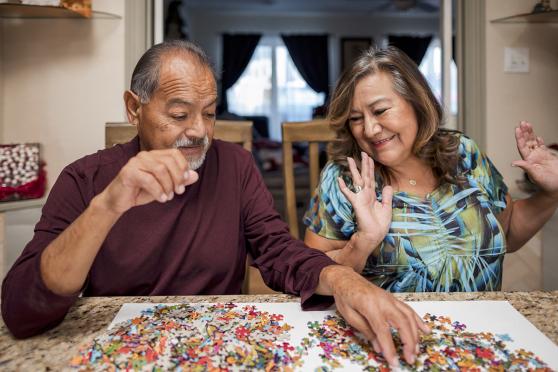Discharged from the hospital? Here’s what you need to know
Take control of your health after hospitalization with these expert tips

When you go home from the hospital, the last thing you probably want to think about is having to go back. Unfortunately, readmission can often be a reality for some previously discharged patients—but many of those instances are preventable.
In fact, one study from JAMA Internal Medicine observing 1,000 hospital readmissions found that approximately 27 percent of those returns were considered potentially avoidable.
What this means: The days and weeks following a hospital visit require your action and preparation to stay healthy and safe in the future. Take control of your health after hospitalization with these expert tips.
Understand your diagnosis and instructions for care
Being in the hospital can be overwhelming, and people often leave without a clear understanding of what happened to them and what it all means, according to internist Lynn McNicoll, MD, director of geriatrics at The Miriam Hospital in Providence, Rhode Island. For example, you may have gone to the hospital because you were experiencing symptoms like a fever, cough, or shortness of breath, but do you fully understand your test results? Was your doctor clear about your diagnosis? Being engaged in conversations with your doctor will help prepare you to care for yourself once you’re discharged, says Dr. McNicoll.
If you’re worried about being overwhelmed by the doctor’s orders, or if you don’t believe you’ll be fully ready to absorb their directions, don’t hesitate to ask a friend or family member to join you for the consultation to jot down notes.
Schedule follow-up appointments with your primary care provider
When calling to make an appointment after discharge, let the office know that you just got out of the hospital. Research shows that visiting your primary care physician within seven days of hospital discharge reduces readmission rates. Your doctor will review your progress since hospitalization, look at your medications and identify if there are issues or questions. He or she can catch any potential complications early, including medication-specific complications, says Dr. McNicoll. If you can’t see your doctor within a week, Dr. McNicoll recommends at least scheduling an appointment within 14 days.
Keep hygiene high at home
Infection of a surgical wound or other illness can sometimes send many people back to the hospital. You can prevent infection by doing simple things like washing your hands and limiting contact with others who do not feel well. Wash hands often for at least 20 seconds with soap and warm water, especially before eating and after using the bathroom. Always wash hands before touching a wound, IV or catheter and ask loved ones to wash their hands as well.
Be aware if something feels off
Following your discharge, look out for symptoms like a fever, pain, or signs infection like redness, warmth or discharge around a wound or incision. Be sure to ask your doctor about any red flags you should be aware of during recovery.
Track medication changes
Before you leave the hospital, it’s important to understand any new medications you were prescribed. This should include getting a clear explanation as to why you’re taking the medication, what it does, possible side effects, interactions with other medications, and changes to your previous medication regimen, says Dr. McNicoll. “Often, people will have different medications, but they’ll continue old medications and then there will be duplicates,” she says. “That’s where a lot of errors happen, which often leads to rehospitalization.”
Stay active
Moving around as best as you can will help your body heal faster, says Dr. McNicoll. The key here is listening to your body and allowing it to have both the rest and movement it needs to recover. “We don’t want people to lie in bed all day because they’ll get weaker,” she says. “If their body is telling them they need to rest, they should rest, but in between naps don’t just lie there. Get up and be active.” You should always seek your primary care provider's advice on the level of activity you are permitted to do.
Eat nutritious foods
You need nutrients even when you’re not feeling hungry. Although it’s important to consult with your doctor on what types of foods you should be eating post-discharge, aim to have protein and carbs at each meal. Drink plenty of water and other liquids, including soup. Avoid any overly sugary foods and limit, or discontinue, alcohol intake.


